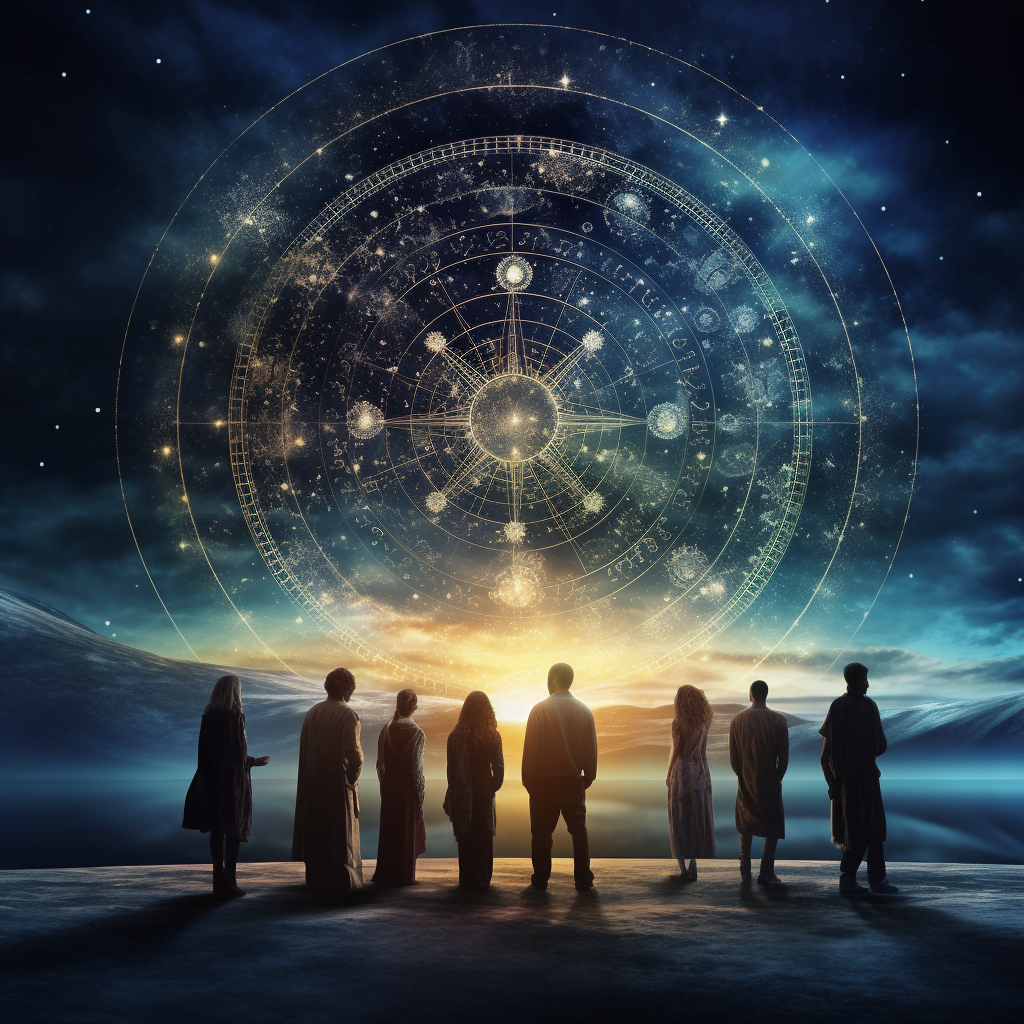Astrology, an ancient practice rooted in celestial observations, has captivated humanity for centuries. This article uncovers the ancient origins of astrology, delving into its early foundations and exploring its connection to the zodiac. From the Babylonians to the Greeks, different civilizations across time have contributed to the development of this intriguing discipline. By tracing its lineage back to these ancient cultures, we gain a deeper understanding of the rich history and significance of astrology in our lives today. Exploring the question of who founded astrology allows us to appreciate how this age-old practice has permeated cultures worldwide, leaving an enduring mark on human curiosity and our connection to the cosmos.
Ancient Origins of Astrology
Introduction to Astrology
Astrology, an ancient practice rooted in the belief that celestial bodies have a profound influence on human affairs, has captivated civilizations throughout history. In its essence, astrology seeks to uncover the connection between the positions of celestial bodies and events occurring on Earth. While astrology today is often associated with daily horoscopes and individual personality traits, its origins can be traced back to the ancient civilizations that saw the immense significance of the night sky.
Astrology in Ancient Civilizations
Astrology held great importance in numerous ancient civilizations, where it played a pivotal role in shaping religious beliefs, guiding decision-making processes, and providing insights into individual destinies. Some of the civilizations that embraced astrology include the Babylonians, Egyptians, Chinese, Greeks, Romans, Indians, and Mayans. Each civilization developed its own unique astrological systems, influenced by their cultural, religious, and philosophical beliefs.
The Origins of Astrology
The precise origins of astrology remain shrouded in mystery, as its evolution occurred over thousands of years. Prehistoric astrology, which emerged from early observation of the sky, laid the groundwork for the development of more structured systems. Despite lacking written records, prehistoric societies likely used the stars for navigation, agricultural planning, and timekeeping.
As civilizations advanced and recorded their knowledge, early records and manuscripts began to emerge. The influence of Mesopotamia, particularly Babylon, played a crucial role in shaping astrology as it is known today. Babylonian astrologers meticulously documented celestial events, leading to the creation of astrological texts and tablets that served as foundations for subsequent astrological systems.
Ancient Astrological Systems
Ancient astrological systems were comprehensive and multifaceted, encompassing various elements such as the zodiac, planetary influences, astrological houses, and techniques/tools utilized in astrological analysis. These systems provided a framework for interpreting celestial phenomena and their impact on human lives.
The zodiac, a fundamental component of astrology, refers to the band of constellations that appear to encircle the Earth’s ecliptic path. Divided into twelve equal parts known as zodiac signs, the zodiac serves as a celestial map, guiding astrologers in determining a person’s sun sign based on the position of the sun at their time of birth.
Planetary influences, another integral aspect of astrology, revolve around the belief that each planet exerts its own unique energy and influence. Astrologers analyze the positions of planets at specific times to gain insights into various aspects of life, such as relationships, career, and personal growth.
Astrological houses serve as sectors within a birth chart, each representing different areas of life or aspects of personality. The arrangement of planets within these houses offers further insight into an individual’s experiences and potential.
Ancient astrologers relied on various techniques and tools to deepen their understanding of celestial influences. These include chart calculations, celestial observation, and the interpretation of celestial events, such as eclipses and comets. These tools allowed astrologers to make predictions, provide guidance, and aid in decision-making processes.
Introduction to Astrology
Meaning and Purpose of Astrology
Astrology’s meaning and purpose extend far beyond its popular association with horoscopes and personality traits. At its core, astrology serves as a tool to comprehend the interconnectedness of the universe and humanity’s place within it. By studying the positions and movements of celestial bodies, astrologers aim to gain insight into the patterns and cycles of life on Earth.
Astrology in Today’s Society
While astrology may have evolved from ancient times, its relevance remains evident in today’s society. Many individuals turn to astrology for guidance, seeking answers to existential questions and a deeper understanding of themselves and their relationships. Astrology has gained popularity through the availability of online platforms and mobile apps, allowing individuals to access astrological information immediately.
Astrology also maintains a presence through professional astrologers who offer in-depth interpretations and consultations. These individuals possess extensive knowledge of the various astrological systems and are equipped to provide personalized insights and guidance based on an individual’s birth chart.
Despite its popularity, astrology faces criticism and skepticism from those who view it as a pseudoscience or mere superstition. However, research and development in the field continue to explore the connections between celestial phenomena and human experiences, striving to establish astrology as a legitimate discipline.
In conclusion, ancient origins of astrology permeate history, illuminating the ways in which civilizations intertwined their beliefs with celestial phenomena. From the Babylonians to the Mayans, and from Egyptian to Greek astrology, each civilization developed unique astrological systems that shaped their culture, religion, and decision-making processes. The study of the stars and celestial bodies persists as astrology remains a guiding force for many in their quest for self-discovery and understanding the mysteries of the universe.


